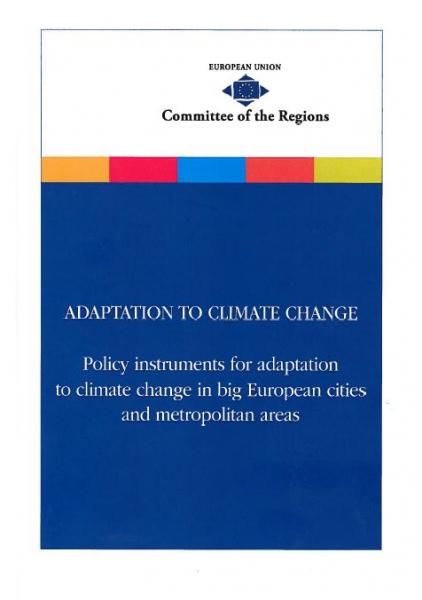In the face of climate change, European cities and metropolitan areas are experiencing particular challenges. This study aims to provide local and regional administrators and interested stakeholders with policy tools and guidance based on existing good practices across Europe.
Many Member States of the European Union have begun to develop overarching adaptation strategies by integrating existing sector specific adaptation approaches and new cross-sectoral approaches. At the EU level, the European Commission’s White Paper of 2009 proposes a framework for action to reduce vulnerability and adapt to climate change. However, while both EU and national levels have an important role in shaping the policy framework for adaptation, adaptation as a policy field can benefit by borrowing from the principle of subsidiarity. A local or regional approach to adaptation offers the advantage of addressing the specific climate change threats at the respective levels (e.g. for transportation infrastructure, land use planning and urban design). However, regional approaches also risk being ineffective and costly if they are developed and implemented in isolation. Planning is often difficult due to uncertainty in small-scale climate change projections and in how natural systems will respond to the change. Local and regional administrators need guidance on setting priorities and distributing resources – as well as information on what policies are likely to generate solutions.
Against this background, the Committee of the Regions commissioned a study with the aim of identifying good practices on adaptation to climate change in large European cities and metropolitan areas to provide guidance to local and regional administrators and interested stakeholders. To this end case studies of adaptation strategies in 20 different European regions were conducted. To make extensive use of first-hand information, the case studies were essentially based on a survey of local and regional administration representatives who have been involved in the development and/or implementation of adaptation strategies. A first round of questionnaire-based interviews focused on the adaptation strategies as a whole while a second round served to analyse individual adaptation measures in more detail. Ecologic Institute led the study and was responsible for the development of the research design, the coordination and part of the case studies, and the documentation of results.
The resulting report contains a literature review, descriptions of the adaptation strategies of 20 European cities and metropolitan areas, an inventory of adaptation measures, and recommendations. It is available for download in English and French. Hard copies in both languages can be obtained from the Committee of the Regions. See also CoR Publications website and EU Bookshop.





